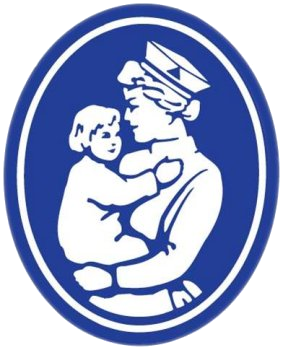


Bi/CNS 163. Functions and Mechanisms of Sleep
We all have some personal experience with the effects of some degree of sleep deprivation. Studies of sleep deprivation constitute a very important tool in order to understand the function(s) of sleep. In addition to that, there are fundamental issues regarding practical questions of sleep deprivation. In many professions, partial/total sleep deprivation is not uncommon (military operations, medical doctors and other health care practitioners). Shifts or changes in sleep patterns or rhythms are also common in shift workers. The urge to sleep may have fatal consequences in several cases such as drivers. It is possible to go without food longer than going without sleep.
Many different questions arise when studying sleep deprivation effects. One should, at least in principle, distinguish between total sleep deprivation, partial sleep deprivation, selective stage sleep deprivation and fragmented sleep. Long and short-term effects should also be studied. A related question is how much and what kinds of sleep (i.e. which specific stages for example) are needed to function normally (which clearly depends on our definition of normally, i.e. on what tests are carried out to study the possible detriment in performance).
Sleep duration varies considerably among different individuals. Psychologists have searched for years for a correlation between the amount of sleep and performance or intelligence without clear results. Brilliant scientists can be found in both extremes. Thomas Edison was a short sleeper and, even though, he strongly argued against the intellectual capabilities of those who are long sleepers, he would probably have changed his mind had he known that Albert Einstein was a long sleeper.
Sleep deprivation in humans: overview
First documented study
One of the first reported studies of sleep deprivation, but still one of the most complete ones was performed at the end of the nineteenth century (1896) by G.T.W. Patrick and A.Gilbert .
1896 First (accurately documented) study of sleep deprivation
- First (documented) study of sleep deprivation. Subject: A.G. (28)
- Remained awake for 90 hours. Wed. Nov. 27, 1885 to midnight on Sat.
- Electrical pulse to his ankle to wake him up, the strength of which was used as a measure of the 'depth' of sleep. (Do not despair, we are not going to do these experiments in class).
- Recovery sleep: only 25 % extra during the first two days.
- Circadian rhythm in 'sleepiness'.
- Drop in reaction time and vigilance; slight increase in weight,
- Body temperature dropped 0.2-0.4 C.
Military operation studies
The problem of how long a subject can perform at an efficient level without sleep if of obvious importance for military operations. A number of experiments have been carried out by military researchers, SUSOP (sustained operation) studies. Typically, those experiments involve 3 days of continuously simulated battle conditions. The milieu in such experiments is rather different from the typical sleep laboratory experiments. In particular, in several studies there is also food restriction, excessive exercise, stress and subjects cannot pull out of the test whenever they wish to.
Guinness records
1964 Randy Gardner .
- The longest study: 264 hours.
- He wanted to beat the world record of 260 hours without sleep.
- n=1.
- He did not take any stimulant drugs, not even coffee.
- Occasional hallucinations, ataxia (inability to perform coordinated movements), speech difficulty, visual deficits, irritability.
- Marked circadian rhythms in sleepiness.
- Medical examination 12 hrs before end of vigil :
- Medical examination 10 days after he went to sleep: Everything was back to normal.
- Recovery Nights.
- He was allowed to sleep for as long as he wanted.
- Most of lost stage 4 was recovered.
- Most of lost REM was recovered.
- All in all, only 24 % of total sleep loss was recovered.
Longest study with more than one subject
1966 Longest study with n>1: 205 hours.
- Meals every 6 hours. Periodical immersion of their faces in ice-cold water.
- Calorie intake was > 50 % beyond expected.
- They were paid very well. After the planned 8 nights deprivation 3 subjects suggested that they could spend one more day awake if they were paid enough. Experimenters declined the offer because they were tired themselves.
- Reading became impossible after the third day because of extreme sleepiness.
- Keeping awake was particularly difficult from 2am to 4am.
Sleep deprivation in humans: summary
Behavioral changes
Determinants of the impact of sleep loss.
- Sleep-circadian influences.
- Prior sleep amount and distribution (like nutritional status and fasting).
- Length of time awake.
Circadian time.
Noise.
Exercise.
Temperature.
Drugs.
Recovery sleep
More slow wave sleep during recovery. This occurs even in babies (who are known to have a large proportion of REM sleep).
Neurological Changes
Hand tremor, mild nystagmus, intermittent slurring of speech.
Slowing of the EEG signals even while subjects are speaking and clearly awake!!!
Sleep-deprivation as epilepsy inducer.
Autonomic changes
No changes in blood pressure, heart rate, respiration rate, skin conductance.
Thermoregulation: No clear indication of deterioration.
Some studies claim there is a 0.3C decrease in temperature. There is a clear circadian rhythmicity (as in non-deprived subjects).
But:
We do not know about the longer-term deprivation (and actually, in rats, temperature effects were not noted until after a week of deprivation).
No clear record of clothing status.
An 84-hr. deprivation study reported no change in overall body metabolism (cf. animals).
No changes in body weight. Subjects do tend to eat more during the first days of deprivation. The reason for this is unclear. It could be that they think they will get debilitated if they don't.
Biochemical changes
No changes in cortisol, epinephrine, hematocrit, plasma glucose.
No change in adrenal or sex hormones.
Increase in melatonin.
Immune system. Controversial.
1894 de ManacÈine was the first scientist that reported experiments in sleep deprivation in animals. He kept puppies awake by walking or handling them continually for 4-6 days.
Body temperature dropped by 4 C.
Decrease in the number of red blood cells.
Hemorrhage in cerebral cortex.
1920-60s Kleitman.
Introduced controls
After 1950, introduced EEG into sleep deprivation studies in animals.
Up to 7 days, in puppies and rabbits, there were no major effects of sleep deprivation.
1964 Licklider and Bunch.
Rats normally sleep ~ 12 hours a day.
They made rats sleep 0, 4, 8, 12 hours a day.
Rats died after 3-14 days.
The 4-hour group survived (time length?)
Next experiment on the 4-hr group (more detailed). This time with adolescent animals. Growth arrested after 50 days in these animals and not in the controls. There were no learning differences.
1980s Alan Rechtschaffen's laboratory at Chicago
Sleep-Deprivation Apparatus.
NREM Sleep 88 % of normal sleep in rats.
Total Sleep Loss:
Controls: 25 %.
Sleep-Deprived: 92 %.
REM-sleep loss (another experiment):
Controls: 4 %.
Sleep-Deprived: 99 %.
(Animals also lose some of the 'deeper' forms of REM sleep).
Constant light. Food available all the time. Neutral Temperature (fixed).
Total Sleep Deprivation
REM sleep deprivation
High-amplitude sleep-deprivation
Experiments with humans
There are a number of problems and confounding factors in sleep deprivation experiments that are worth emphasizing. To begin with, understanding what happens under sleep deprivation does not logically imply the functions of sleep. For example, regulatory compensatory mechanisms may play a role under mild deprivation that can obscure the effects of sleep deprivation. A parallel can be drawn between these experiments and the knockout of a gene in molecular biology experiments. There are cases in which a single knockout does not lead to a clear phenotype. It is possible that some other compensatory mechanisms play a role. It is also possible that the right behavior was not studied. A particularly interesting example in that sense is the study of the function of the prion protein where some studies suggest that it may be involved in sleep regulation .
Interestingly, molecular biologists also study the effects of over-expressing specific genes. In the sleep research field, very few studies have been carried out to study the effects of excess of sleep.
If a particular behavior or physiological measure is affected by sleep deprivation, that suggests that sleep may be necessary in the regulation of that process but it clearly does not prove the sufficiency of sleep for that function or response.
Sleep deprivation experiments cannot be double blind. The subjects are always aware that they are being studied, and that they are not allowed to sleep. Some subjects may be stressed because of this. Motivation may play an important role in the ability to cope with the deprivation condition.
Deprivation experiments typically involve more than loss of sleep. Maintenance of wakefulness requires movement, light, perhaps some stimulation, excess work, and different postures. The environment and activities that the subject is exposed to are usually quite different from routine.
Experiments with animals
The main concern with most animal experiments is that of stress factors. This is also a concern in humans. However, humans know that they can stop the experiment at any time. This is clearly not the case with animals. Even when careful measures have been taken in order to apply the same levels of stress to the non-deprived animals, the devil's advocate could argue that there is an interaction between the effects of sleep deprivation and stress. Therefore, no matter how much effort is put into controlling for stress, the interaction factor will, of necessity, be absent.
The motivation factor may be less important in animals (and is harder to evaluate other than by the results themselves). When comparing different experiments, it is important to consider what the control animals are doing, how animals were kept awake, how they tested whether the animals were awake or not, the behavioral and physiological tests that were carried out to study the effects of deprivation.
What are the differences between humans and (other) animal experiments?
The general finding is that animals do worse when they are sleep deprived. Some ways to explain this fact:
- There is a fundamental function of sleep in animals that is not present in humans.
- We are able to compensate for it better.
- There are fundamental differences in the way the experiments are done.
- Some physiological characteristics of animals (e.g. metabolic requirements or the immune system) make them more susceptible.
- Body Surface / Weight ratio.
- Humans are much more cosseted by the experimenters.
- Awakening methods are much swifter in humans.
- Humans always know that they can quit whenever they want (except for the SUSOP experiments).
- Rat experiments last until they die.
A 53-year old industrial manager consulted the clinician Elio Lugaresi about his increasing difficulty in falling asleep. A few months later, insomnia was almost total and dreamlike episodes were intermixed in the waking period. He died nine months after the onset of the symptoms. His father and two sisters died in the same manner! (Luagersi E. et al, 1998).
The key clinical aspects of fatal familial insomnia include:
There seens to be a selective atrophy of the anteroventral and mediodorsal thalamic nuclei. These nuclei constitute the limbic part of the thalamus interconnecting limbic and paralimbic regions of the cortex and other subcortical structures in the limbic system including the hypothalamus. The hypothalamus released from cortico-limbic control is shifted to a prevalence of activating, as opposed to deactivating, functions including loss of sleep, sympathetic hyperactivity and the attendant attenuation of autonomic circadian and endocrine oscillations.
The reasons why subjects die is still unclear.
Unresolved issues: hot topics for a Ph.D.
- More experiments with intermediate animals (between rats and humans) are required. Particularly, what happens with sleep deprivation in monkeys? Many of the problems mentioned above about human experiments would be avoided. On the other hand, monkeys are expensive (but this is also true about human experiments).
- What happens with rats that are significantly sleep-deprived if they are allowed to sleep a few hours/days before dying? Can they recover? They could also be allowed to recover only particular stages.
- What happens in the experiment with rats if the environmental temperature is reduced/increased?
- What happens if we sleep too much?
This is a partial list; for a complete list of references, please go to the Bibliography page
Everson, C. A. (1995). "Functional Consequences of sustained sleep deprivation in the rat." Behavioural Brain Research 69: 43-54.
Hobson, J. (1995). Sleep. New York, Scientific American Library.
Horne, J. (1988). Why we sleep: The functions of sleep in humans and other mammals. Oxford, Oxford University Press.
Lugaresi E; Tobler I; Gambetti P; Montagna P (1998) The pathophysiology of fatal familial insomnia. Brain Pathol 1998 8(3):521-526
Patrick, G. T. W. and J. A. Gilbert (1896). "On the effects of loss of sleep." The psychological review. 3(5): 469-483.
Rechtschaffen, A., M. A. Gilliland, et al. (1983). "Physiological correlates of prolonged sleep deprivation effects in rats." Science 221: 182-184.
Ross, J. J. (1965). "Neurological findings after prolonged sleep deprivation." Archives of Neurology 12: 399-403.